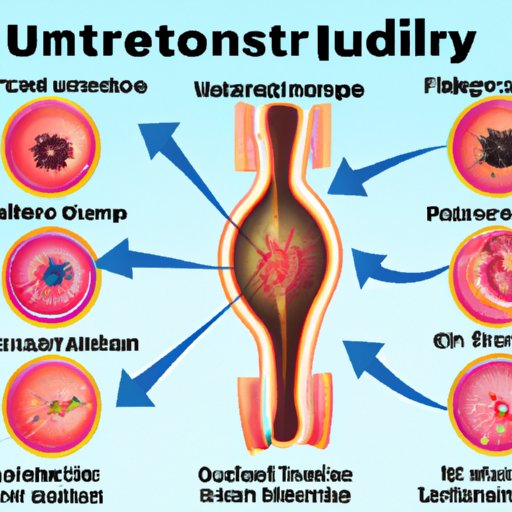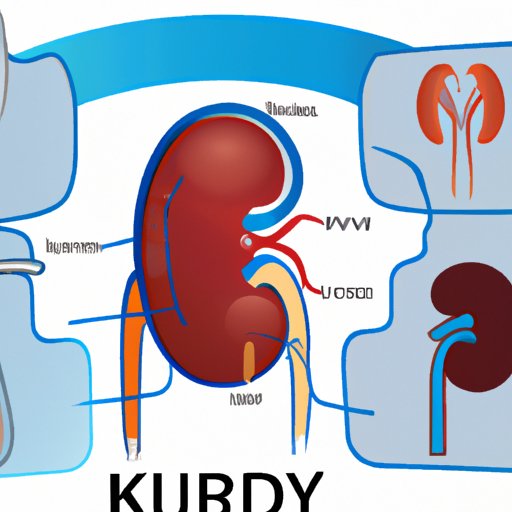Introduction
The urinary system is a complex network of organs, which plays an important role in eliminating waste from the body. This article provides an overview of the anatomy and physiology of the urinary system, as well as information on diagnosing and treating urinary system disorders. It also offers tips on preventing urinary system issues.

Anatomy and Physiology of the Urinary System
The urinary system is made up of several organs that work together to eliminate waste from the body. These organs include the kidneys, ureters, bladder, and urethra. The kidneys are located in the lower abdomen and are responsible for filtering waste and excess fluids from the blood. The ureters are two tubes that connect the kidneys to the bladder, where urine is stored until it is ready to be eliminated from the body. The urethra is a tube that carries urine from the bladder out of the body.
The Role of Kidneys in Urinary Function
The kidneys play an essential role in maintaining fluid balance in the body. They filter waste and excess fluids from the blood and excrete them in the form of urine. They also help regulate blood pressure, produce hormones, and regulate electrolyte levels. In addition, the kidneys help regulate the acid-base balance in the body, which is important for proper functioning of all bodily systems.

Effects of Urinary System Dysfunction
When the urinary system is not functioning properly, it can cause a variety of signs and symptoms. These may include frequent urination, pain or burning during urination, cloudy or bloody urine, and fatigue. Urinary system disorders can have a range of causes, including infections, kidney stones, medications, and certain medical conditions.

Diagnosis and Treatment of Urinary System Disorders
In order to diagnose a urinary system disorder, a doctor will typically perform a physical exam and order tests such as a urinalysis, ultrasound, CT scan, or MRI. Depending on the diagnosis, treatment may involve antibiotics, surgery, medications, or other therapies. In some cases, lifestyle changes may be recommended to help manage the condition.
Home Remedies for Urinary System Health
In addition to medical treatments, there are a few home remedies that may help promote urinary system health. Eating a balanced diet that includes plenty of fruits, vegetables, and whole grains can help support kidney function. Drinking plenty of water and avoiding caffeine and alcohol may also help reduce the risk of urinary system issues. Herbal remedies, such as dandelion root and nettle, may also provide some benefits.
Prevention Strategies for Urinary System Issues
Making lifestyle changes, such as exercising regularly, managing stress, and limiting processed foods, can help reduce the risk of developing urinary system issues. It is also important to get regular check-ups with a medical professional to ensure that any potential problems are identified and addressed early. Finally, being aware of any family history of urinary system disorders can help you take steps to prevent them.
Conclusion
The urinary system is a complex network of organs that play an important role in eliminating waste products from the body. Proper functioning of the urinary system is essential for overall health, so it is important to be aware of the signs and symptoms of urinary system disorders and take steps to prevent them. By understanding the anatomy and physiology of the urinary system, as well as the various treatments and home remedies available, you can take steps to keep your urinary system healthy.
(Note: Is this article not meeting your expectations? Do you have knowledge or insights to share? Unlock new opportunities and expand your reach by joining our authors team. Click Registration to join us and share your expertise with our readers.)
